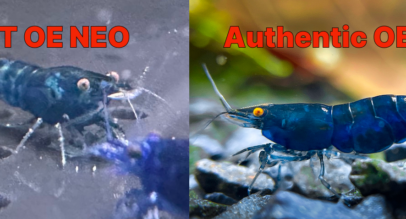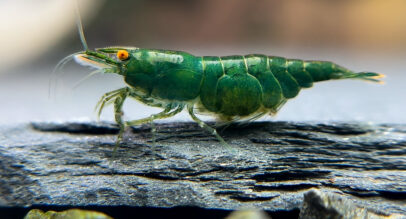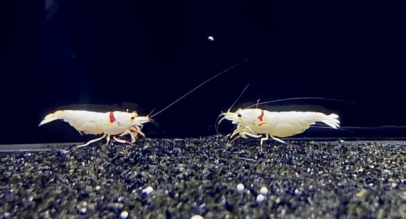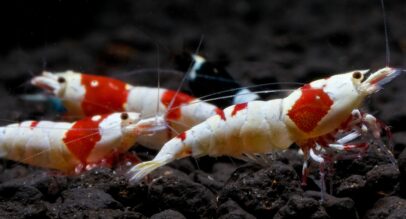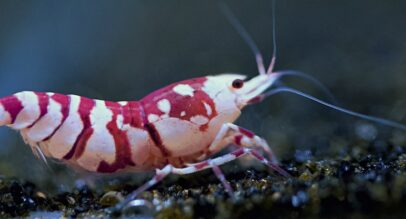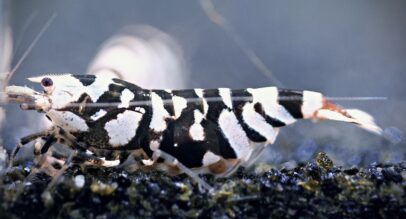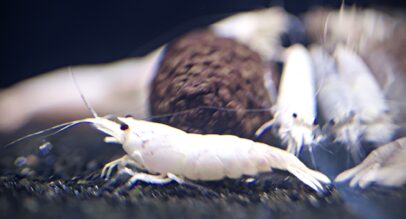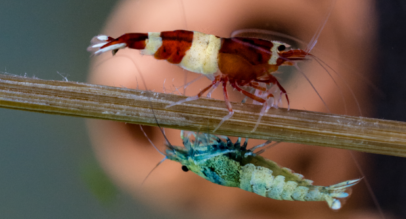Brief overview of Caridina Galaxy Snowflake Shrimp species
Caridina galaxy snowflake shrimp, also known as Caridina cantonensis, is a stunning and highly sought-after species in the aquarium hobby. These delicate freshwater shrimp are renowned for their intricate patterns and vibrant colors, making them a popular choice for planted aquariums and nano tanks.
Importance of temperature in Caridina Galaxy Snowflake Shrimp Care
However, keeping Caridina galaxy snowflake shrimp healthy and thriving requires a deep understanding of their environmental needs, particularly when it comes to temperature. As ectothermic (cold-blooded) animals, these shrimp are highly sensitive to fluctuations in water temperature, which can have a significant impact on their physiology, behavior, and overall well-being.
We will dive into the ideal temperature requirements for Caridina galaxy snowflake shrimp, exploring the importance of maintaining a stable and optimal thermal environment, as well as strategies for achieving and maintaining the perfect temperature in your aquarium. By understanding and implementing these guidelines, you can create the perfect conditions for your Caridina galaxy snowflake shrimp to thrive and showcase their stunning natural beauty.
Ideal Temperature Range for Caridina Galaxy Snowflake Shrimp
General Optimal Temperature Range
The ideal temperature range for Caridina Galaxy Snowflake Shrimp is between 64-72°F (18-22°C). Maintaining the tank water within this range will provide the best conditions for the shrimp’s health and longevity.
Tolerable Temperature Range
While Caridina Galaxy Snowflake Shrimp can survive within a broader temperature range of 60-82°F (15.5-28°C), temperatures at the extreme ends of this spectrum may cause stress and should not be considered optimal for long-term care. Exposing the shrimp to temperatures outside the 64-72°F (18-22°C) range for extended periods can negatively impact their health and behavior.
Ideal Breeding Range
Many experienced breeders find that keeping the tank temperatures on the cooler side of the optimal range, around 70-72°F (21-22°C), can promote better breeding results for Caridina Galaxy Snowflake Shrimp. The slightly lower temperatures seem to create conditions that are more favorable for reproduction and the development of their young.
Temperature Reduction to Trigger Breeding
Adding cold water to a Caridina Galaxy Snowflake Shrimp tank can indeed have effects on molting and breeding, but it’s important to understand the process and its implications.
Temperature Change and Molting
A sudden drop in temperature can trigger molting in shrimp. This is thought to mimic the seasonal changes in temperature that occur in the shrimp’s natural habitat, where fluctuations in water temperature are common.
Molting and Breeding Connection
Shrimp must molt before they can mate. When a female shrimp molts, she releases pheromones that attract males. A successful molt can therefore increase the likelihood of breeding activity occurring in the tank.
So while deliberately reducing the water temperature can stimulate molting and potentially lead to more breeding, it’s crucial to make any temperature changes gradually. Sudden, drastic drops in temperature can stress the shrimp and potentially lead to negative outcomes. Careful tank management and monitoring are required to strike the right balance when trying to encourage breeding behavior through temperature manipulation.
How to Use Temperature Reduction to Trigger Breeding
Aquarists often use a gradual temperature reduction to try and stimulate breeding activity in Caridina Galaxy Snowflake Shrimp.
The Process
Typically, this involves performing a partial water change using slightly cooler water than the current tank temperature. This creates a temporary drop of a few degrees in the overall water temperature.
It’s crucial that the temperature change is made gradually to avoid shocking the shrimp. Sudden, drastic drops can be very stressful for the inhabitants.
Precautions
The temperature difference between the existing tank water and the new water should not be too extreme – usually no more than 2-3°C (3.6-5.4°F) cooler. Additionally, other important water parameters like GH, KH, and TDS should be closely matched to prevent osmotic shock.
It’s also important not to overuse this technique, as frequent temperature fluctuations can be stressful for the shrimp over the long term.
Other Factors
While using a gradual temperature drop can encourage breeding behavior, it’s not a guarantee of success. Other important factors like overall water quality, nutrition, and general tank conditions play an equally crucial role in shrimp breeding.
Carefully monitoring the shrimp’s response and making adjustments as needed is key when trying to stimulate breeding through temperature manipulation.
Effects of Temperature on Caridina Galaxy Snowflake Shrimp
The temperature of the aquarium water has a significant impact on various aspects of Caridina Galaxy Snowflake Shrimp biology and behavior.
Metabolism and Growth Rates
Temperature directly influences the shrimp’s metabolic processes and growth rates. Higher temperatures generally result in faster metabolism and accelerated growth, while lower temperatures slow down these vital functions.
Breeding and Reproduction Cycles
The optimal breeding temperature range for Caridina Galaxy Snowflake Shrimp is on the cooler side of the ideal range, around 70-72°F (21-22°C). Temperatures outside this range can negatively impact breeding success and reproductive cycles.
Color Intensity and Pattern Development
Ideal temperatures help Caridina Galaxy Snowflake Shrimp maintain their vibrant coloration and intricate patterns. Significant temperature fluctuations can cause changes in their appearance.
Molting Frequency and Success
Temperature changes can trigger molting in shrimp. While this is a natural process, improper temperatures can disrupt the molting cycle and lead to issues with the shrimp’s ability to successfully shed their exoskeletons.
Lifespan and Overall Health
Maintaining the aquarium water within the ideal temperature range is crucial for the long-term health and lifespan of Caridina Galaxy Snowflake Shrimp. Extreme or prolonged temperatures outside this range can negatively impact their overall wellbeing.
Risks of Improper Temperature
Consequences of Temperatures Too High
Exposing Caridina Galaxy Snowflake Shrimp to water that is too warm can result in increased stress and mortality, oxygen depletion in the water, and greater susceptibility to diseases.
Effects of Temperatures Too Low
On the other end of the spectrum, water temperatures that are too cool can slow the shrimp’s metabolism and growth, reduce breeding success, and weaken their immune system.
Maintaining the appropriate temperature range is essential for ensuring the health and longevity of your Caridina Galaxy Snowflake Shrimp.
Maintaining Stable Temperatures for Caridina Galaxy Snowflake Shrimp
Keeping the water temperature within the ideal range for Caridina Galaxy Snowflake Shrimp requires careful equipment selection and placement.
Choosing the Right Cooling System
There are a few options for cooling an aquarium effectively. Chillers provide precise temperature control by actively removing heat from the water, while fans create airflow to help dissipate heat. The size of the cooling system needed will depend on factors like the tank volume, lighting, and ambient room temperature.
Heater Selection and Placement
Selecting the proper size heater for your tank is also crucial. The heater should be able to maintain the ideal temperature range without constantly running at maximum capacity. Placement is important too – the heater should be positioned in an area with good water flow to ensure even heat distribution.
Using Precision Thermometers
Accurate temperature monitoring is key. High-quality digital thermometers with probes placed at multiple locations in the tank will provide the best insight into the water conditions.
Seasonal Temperature Management
Summer Challenges and Solutions
Keeping Caridina Galaxy Snowflake Shrimp cool during the hot summer months can be tricky. Using a combination of cooling equipment, shading the tank from direct sunlight, and performing gradual water changes with slightly cooler water can help prevent overheating.
Winter Considerations
In the colder winter months, reliable backup heating becomes important. Having multiple heaters or a backup power generator can ensure the tank maintains the optimal temperature even if the primary heater fails or the power goes out.
Consistent, stable temperatures are essential for the long-term health and wellbeing of Caridina Galaxy Snowflake Shrimp. Careful equipment selection, strategic placement, and seasonal adjustments are key to providing the ideal environment.

